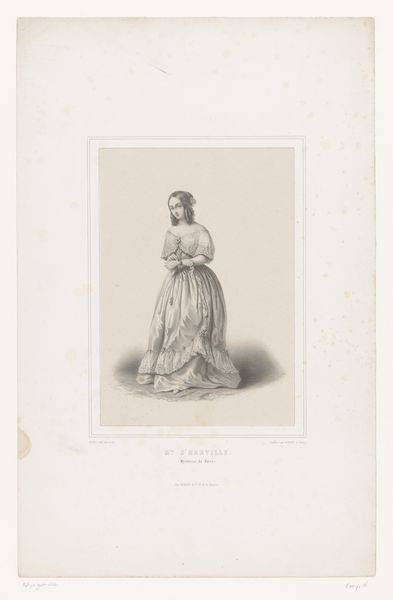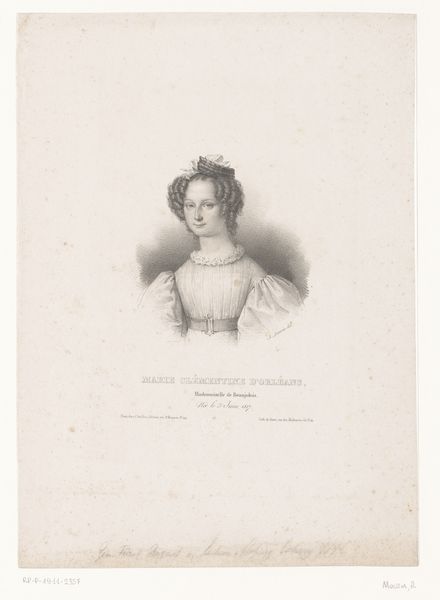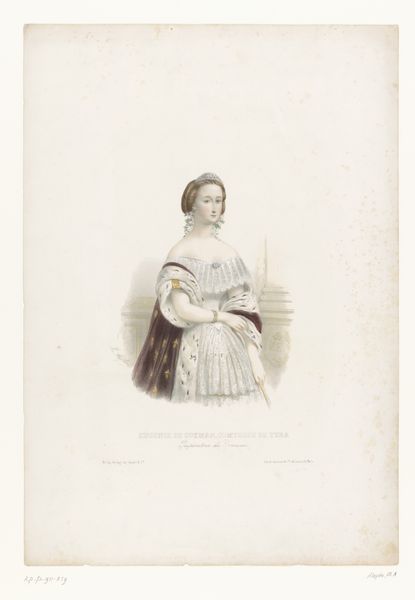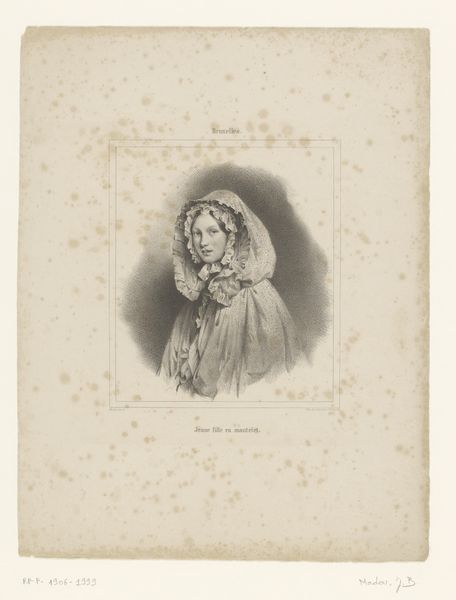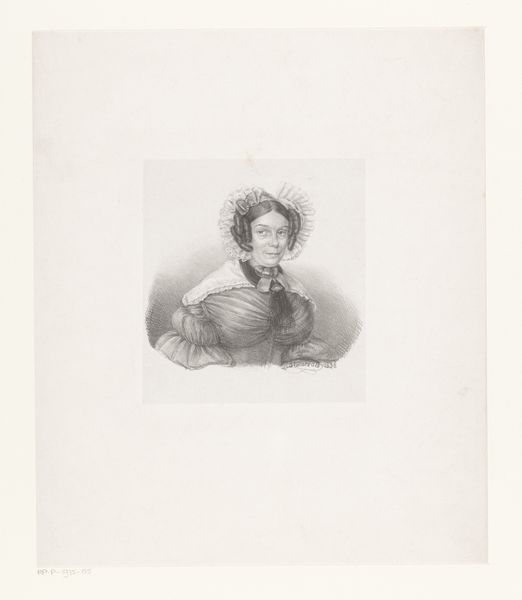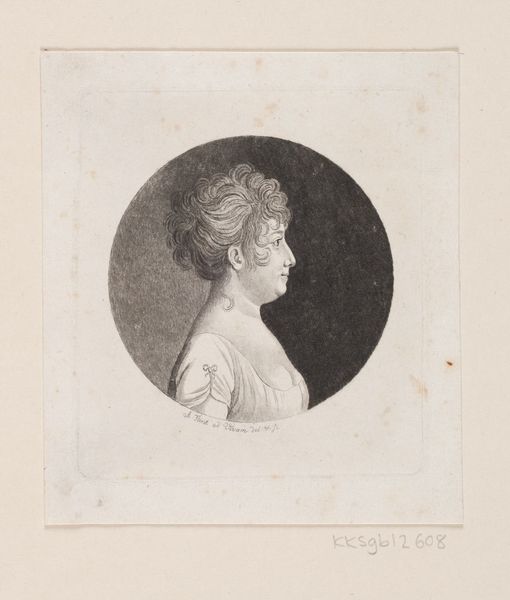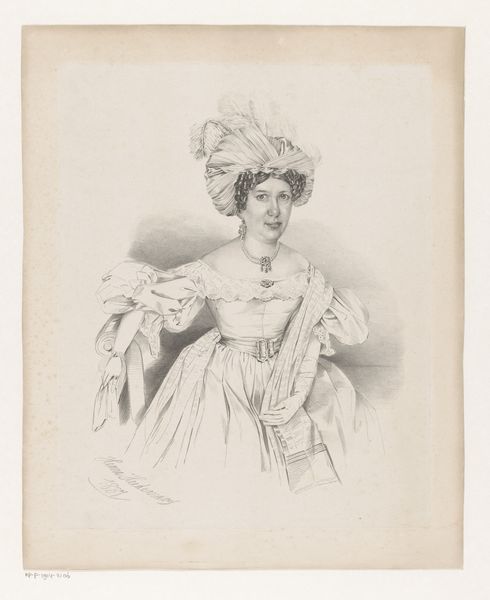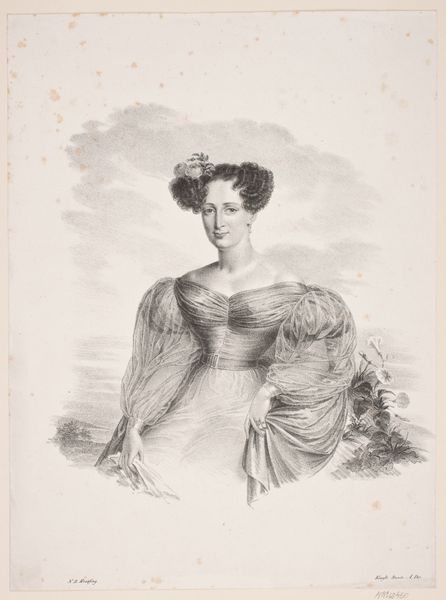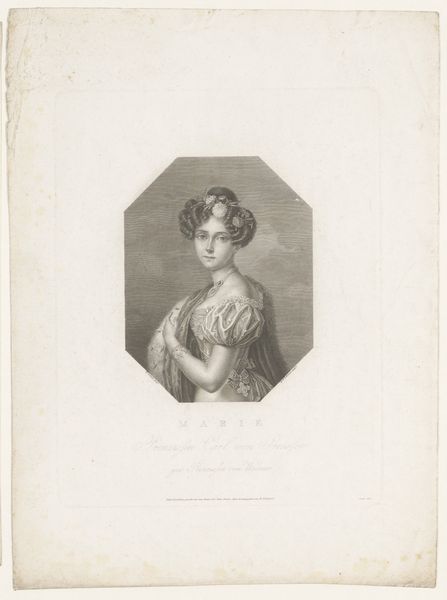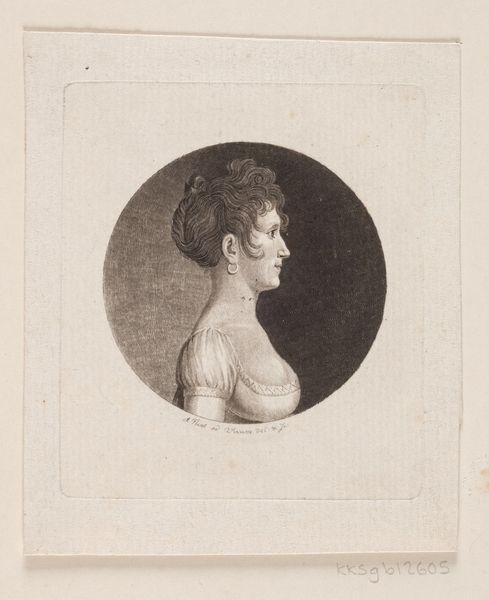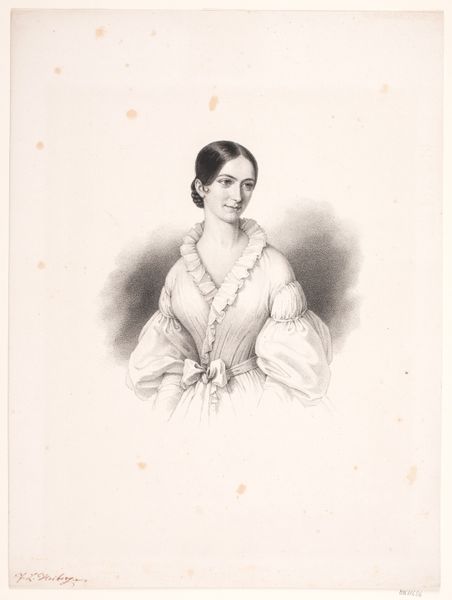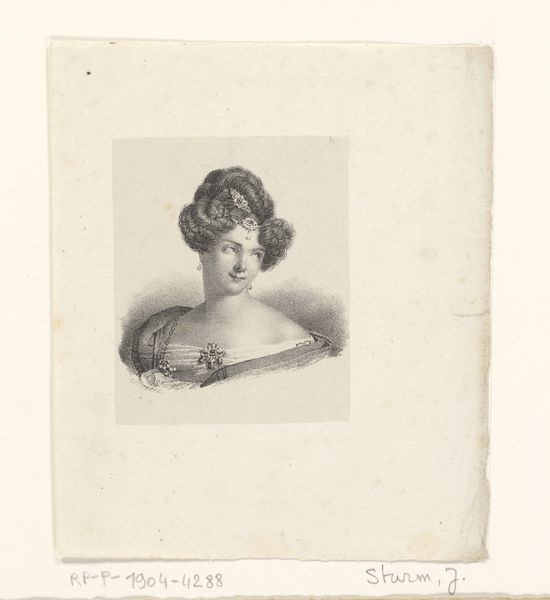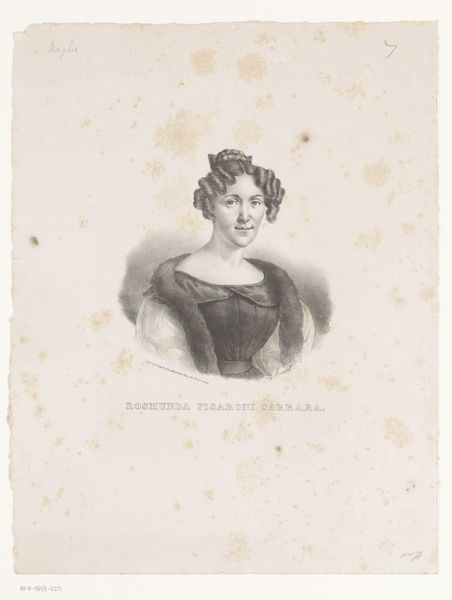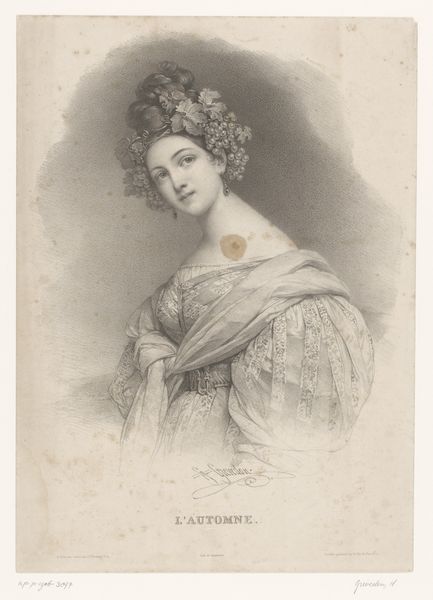
lithograph, print
#
neoclacissism
#
lithograph
# print
#
realism
Dimensions: 400 mm (height) x 268 mm (width) (bladmaal)
This is Wilhelm Heuer’s rendering of Queen Caroline Amalie as a princess, captured in delicate lines. The princess’ hands are clasped at her front, fingers entwined. This gesture of interlaced hands is ancient, appearing throughout history in various forms, laden with evolving symbolism. One sees such gestures in Roman funerary art, symbolizing unity and fidelity between the deceased and their spouse. It reappears in early Christian iconography representing prayer or penance. Then, during the Renaissance, it morphs again, often signifying devotion or marital fidelity in portraiture, a subtle nod to the sitter's virtues. Here, in this portrait, the interlocked hands create a sense of contained emotion, a potent psychological device reflecting the sitter’s inner thoughts and feelings. This posture allows us a glimpse into the sitter’s self-presentation, hinting at a complex interplay between public duty and personal emotion. Such gestures carry the weight of cultural memory, a recurring motif endlessly reshaped by the currents of history.
Comments
No comments
Be the first to comment and join the conversation on the ultimate creative platform.
